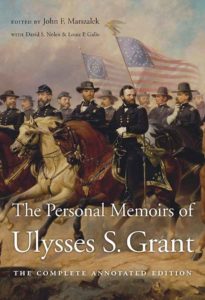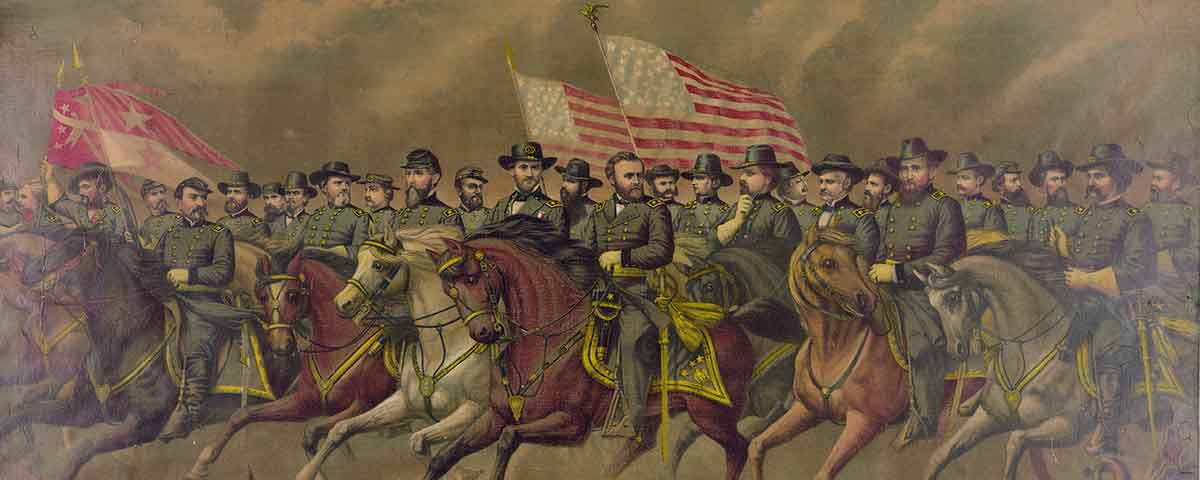[dropcap]F[/dropcap]ew authors have been as successful in achieving what they set out to do as Ulysses S. Grant. When he began work on his memoirs, Grant had to repair his family’s finances, tattered by ill-advised investments. In addition, Grant understood that he had won the admiration of the American people not simply because he won the Civil War, but also because of the style with which he conducted himself and his image as a simple soldier. He also understood that his image needed repair because of his presidency’s association with Gilded Age tawdriness. Moreover, by the 1880s Southern writers who sought to promulgate a myth of the Civil War that emphasized the Confederacy’s martial and moral superiority had been all too successful in their efforts. Their considerable success in tarnishing Grant’s military reputation had to be countered.
What Grant produced—with throat cancer having placed him at death’s door—was a work that, while assuredly worthy of the sort of scrutiny that all such works merit, deservedly won enduring recognition as a truly great work of American literature. Now a team of editors led by John F. Marszelak, executive director of the U.S. Grant Presidential Library, succeed admirably in their own important work—namely, the most thoroughly annotated edition of The Personal Memoirs of Ulysses S. Grant ever to appear.

Edited by John F. Marszalek, with David S. Nolen and Louie P. Gallo
The Belknap Press of Harvard University Press, 2017, $39.95
To say this book will be of value to anyone with an interest in Grant’s life through the end of the Civil War would of course be trite. This, after all, would be the case with nearly any edition of the Memoirs that has appeared since 1885, as its enduring importance can hardly be overstated. Yet the editors here do more than simply provide a welcome excuse to read this great work. Readers will appreciate and be impressed by the extensive amount of information and commentary the editors provide in the footnotes on the various figures and events mentioned in the Memoirs. They will also appreciate the well-constructed introduction that briefly chronicles how the Memoirs came into being.
Although he achieved at best a mixed success in his effort to counter the emerging Southern myth of the Lost Cause, Grant succeeded spectacularly in achieving his other goals. The Memoirs generated for his wife, Julia Dent Grant, what was then the largest royalty check in history ($450,000, equivalent to $11 million today). They also effectively resurrected Grant’s image as the plain-spoken, modest soldier who not only saved the Union, but also reaffirmed the faith of the American people that common men drawn from among them were capable of uncommon accomplishment.





